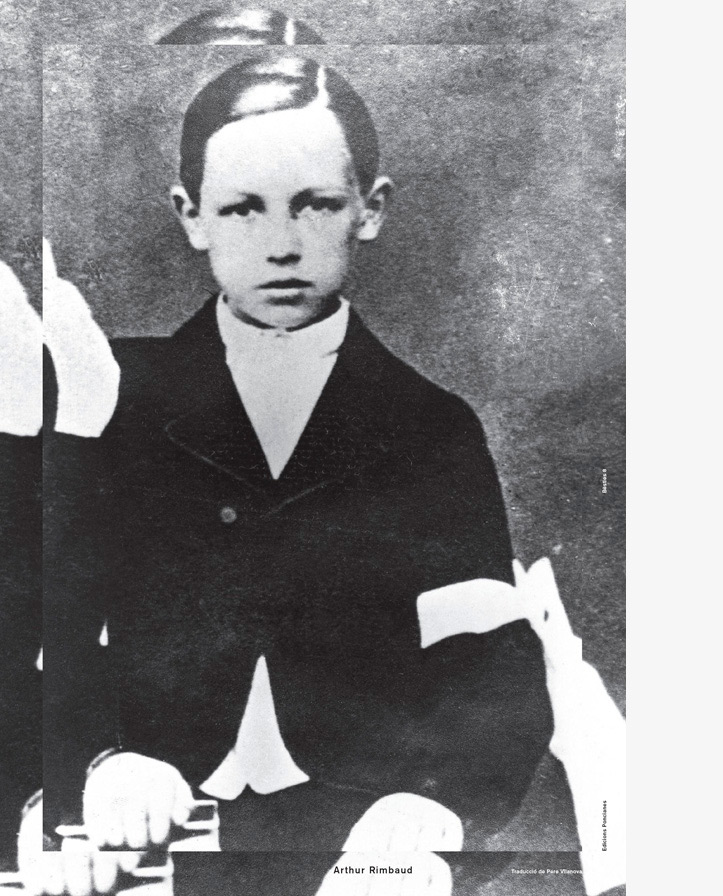Bèsties 8. Rimbaud
11.00€
A selection of poems covering the full span of Rimbaud’s trajectory. He was considered to be the most “genuine” of French poets, his production being both outstanding and surprisingly precocious —his first verses were written at the age of 12; and he was already being published by the time he was 15. His achievements as a poet are among the highest in French poetry and, to some, even in universal literature. The sensitivity that we perceive in his poetry is in contrast to the brutality with which he faced his life; however, Rimbaud tells us that love needs a reinvention, that all these great passions of his predecessors are nothing more than consumed mechanisms; he tells us that we must be absolutely modern and free.
Arthur Rimbaud (France, 1854-1891). Brought up in the Second French Empire, as a teenager he had first-hand experience of the disastrous Franco-Prussian War and the subsequent rise of the Paris Commune in 1871. He wrote the best poetry of his time between the ages of 16 and 21. After that, he abandoned literature altogether. He lived in late-19th-century France, where Hugo and Baudelaire had already left a mark, still the great cultural powerhouse of the world, its capital city being the creative centre of all the ideas about progress since the Age of Enlightenment had begun in the early 18th century.
Pere Vilanova Estrada (Barcelona, 1988) is a poet and singer-songwriter. He has recently published his fourth album, Les tres estacions. His ambient pop-folk music is filled with poetry and desire. His poetical work is collected in Korenlei (Curbet Edicions, 2014).
***
Bèsties is a wallpaper collection that combines the poetry and the portraits of some of the most acclaimed authors of universal literature. A selection of excerpts —posthumous, unpublished, forgotten— are presented in a groundbreaking format by the translators, current Catalan poets. The posters escape the parcelling of conventional pagination to project in a single canvas the unity of meaning emanating from the poems. Each wallpaper comes with a separate front page including a foreword by the translator, which contextualizes their selection and situates the author in their context.


